As the year draws to an end, The Moscow Times selected 9 of the most newsworthy deaths from 2022, including men and women whose deaths were a direct result of the fighting in Ukraine.
The list features at least one assassination, and several still-unexplained deaths.
Vladimir Zhirinovsky
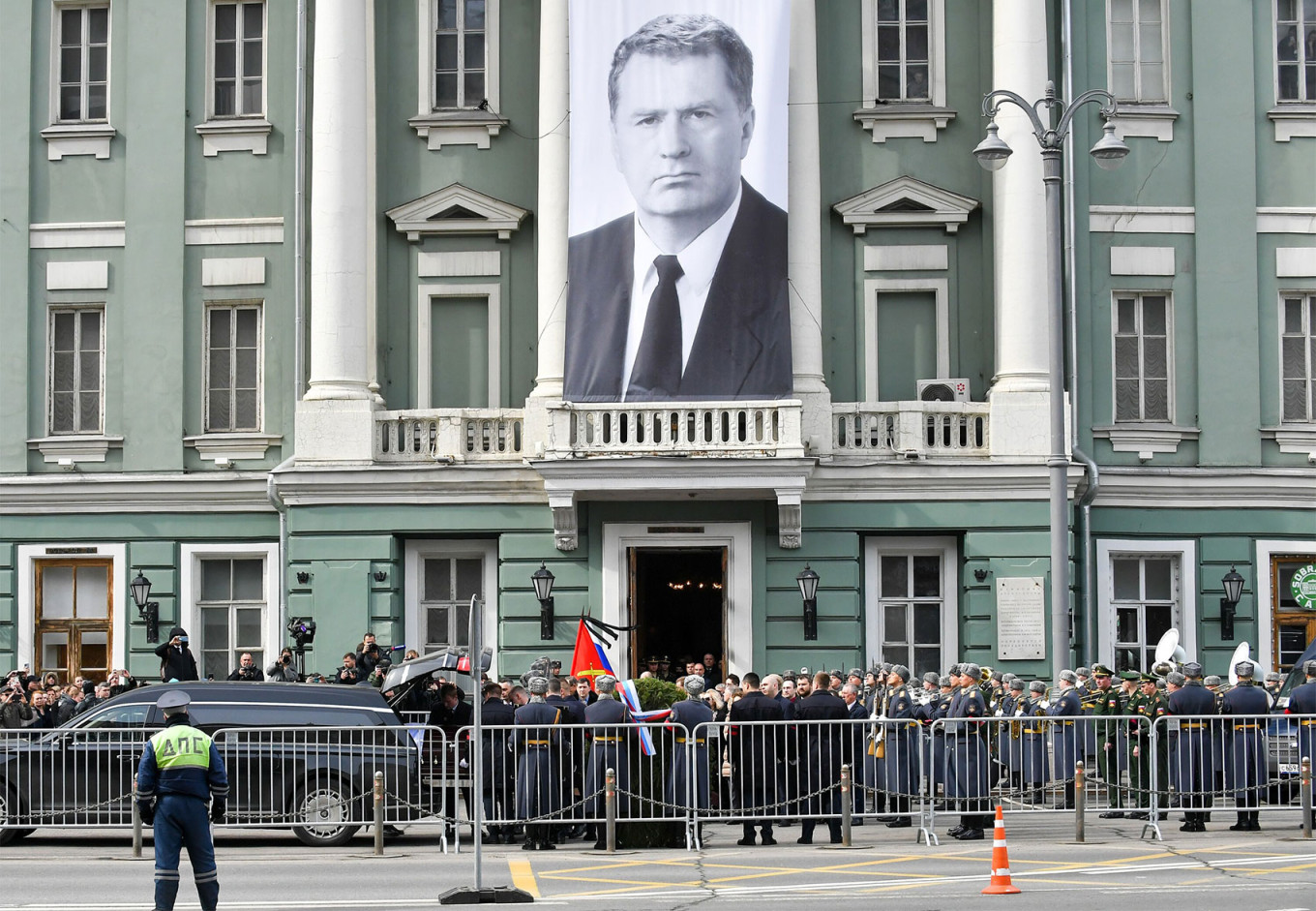 Funeral ceremony for Vladimir Zhirinovsky.Sergei Kiselev / Moskva News Agency
Funeral ceremony for Vladimir Zhirinovsky.Sergei Kiselev / Moskva News Agency
A flamboyant demagogue and founder of Russia’s ultra-nationalist Liberal Democratic Party (LDPR), Vladimir Zhirivosky died at the age of 75 in April after falling ill with Covid-19.
An outspoken showman, Zhirinovsky was born into poverty in post-war Soviet Kazakhstan, and set-up the Soviet Union’s first political party — apart from the Communist Party – in 1989 (according to some reports, he received help from the KGB).
While the popularity of the LDPR caused panic among Russian liberals in the 1990s, the party later fell under Kremlin control and became part of the so-called “systemic opposition.”
Often described as a clown, Zhirinovsky appeared to predict the imminent invasion of Ukraine when speaking in Russia’s parliament at the end of 2021, months before his death.
“This will not be a peaceful year. This will be a year when Russia once again becomes a great country,” Zhirinovsky told lawmakers.
Darya Dugina
Funeral ceremony for Darya DuginaAnton Velikzhanin / Moscow 24 / Moskva News Agency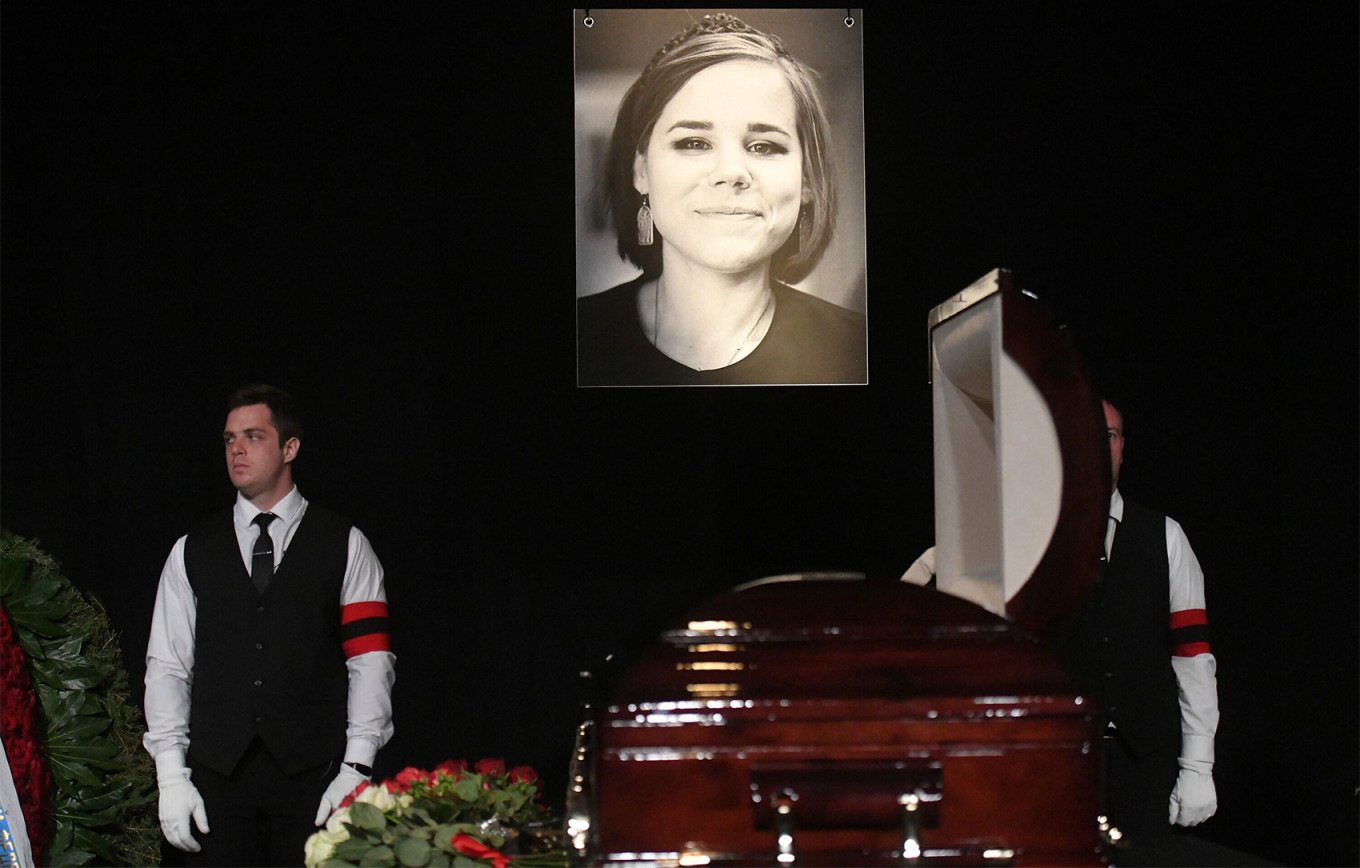
The daughter of far-right ideologue Aleksandr Dugin, 29-year-old Darya Dugina was killed in August when a bomb planted under her Toyota Land Cruiser detonated as she returned home from a nationalist festival in the Moscow region.
The assassination of the prominent television commentator remains shrouded in mystery. U.S. officials said in October that Kyiv was behind the car bombing, though stopped short of saying whether the intended target had been Dugina or her father, who was supposed to be in the car with her at the time.
Russian officials quickly accused Kyiv of being behind the attack, although Kyiv has denied any involvement.
“She died for the people, for Russia,” Dugin said at her funeral.
Yakov Rezantsev
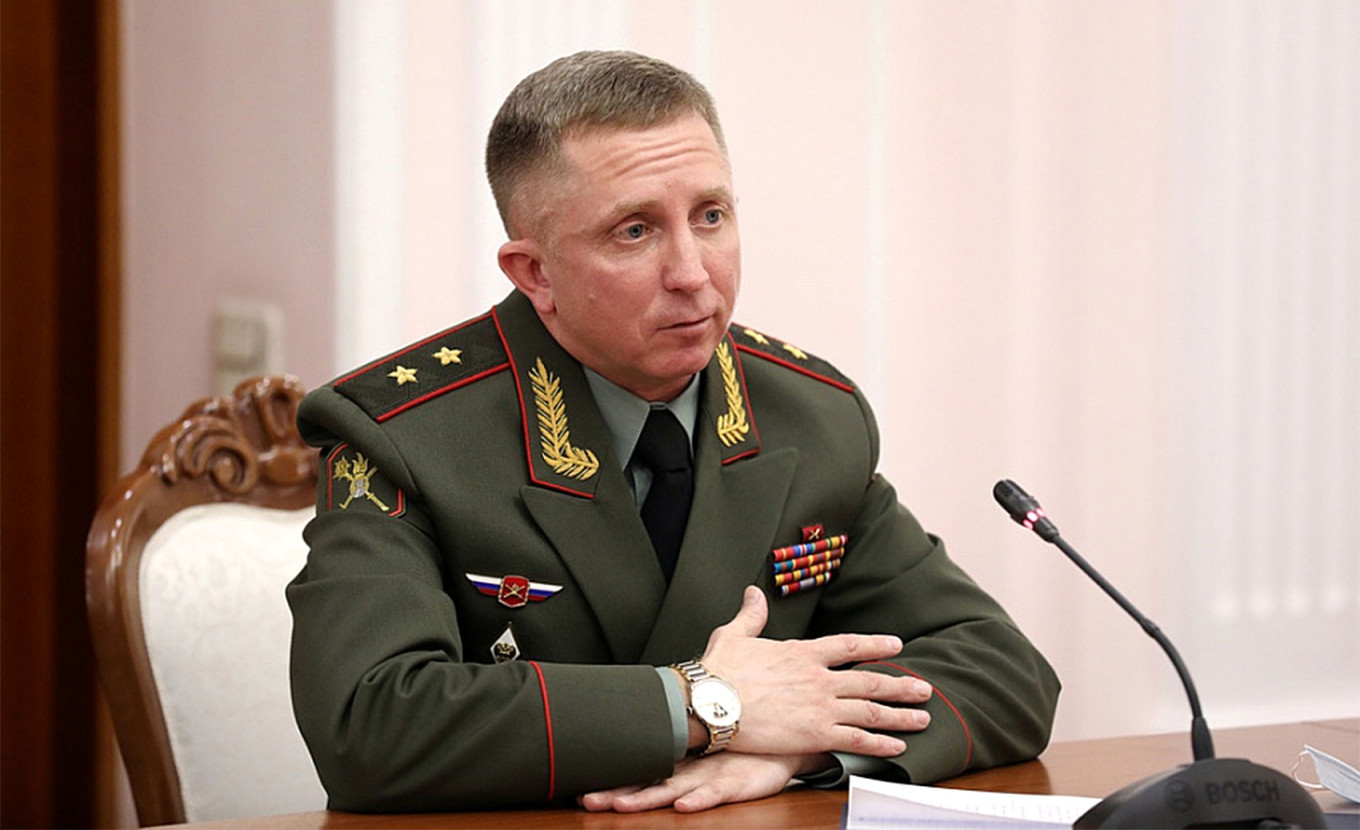 Lieutenant General Yakov Rezantsev.Krasnodar Krai Administration
Lieutenant General Yakov Rezantsev.Krasnodar Krai Administration
The commander of Russia’s 49th Combined Arms Army, Yakov Rezantsev is reportedly the highest-ranked Russian officer to die in Ukraine to date.
Born in the village of Elbanka, a tiny settlement on the banks of the Charysh River in the south-eastern region of Russia’s Altai Krai, Rezantsev was apparently killed near the Chernobaivka airbase in southern Ukraine’s Kherson region in March.
After reportedly serving in Syria, Rezantsev was made a Lieutenant General in 2021.
Rezantsev’s death has not been officially confirmed by Moscow.
Mikhail Gorbachev
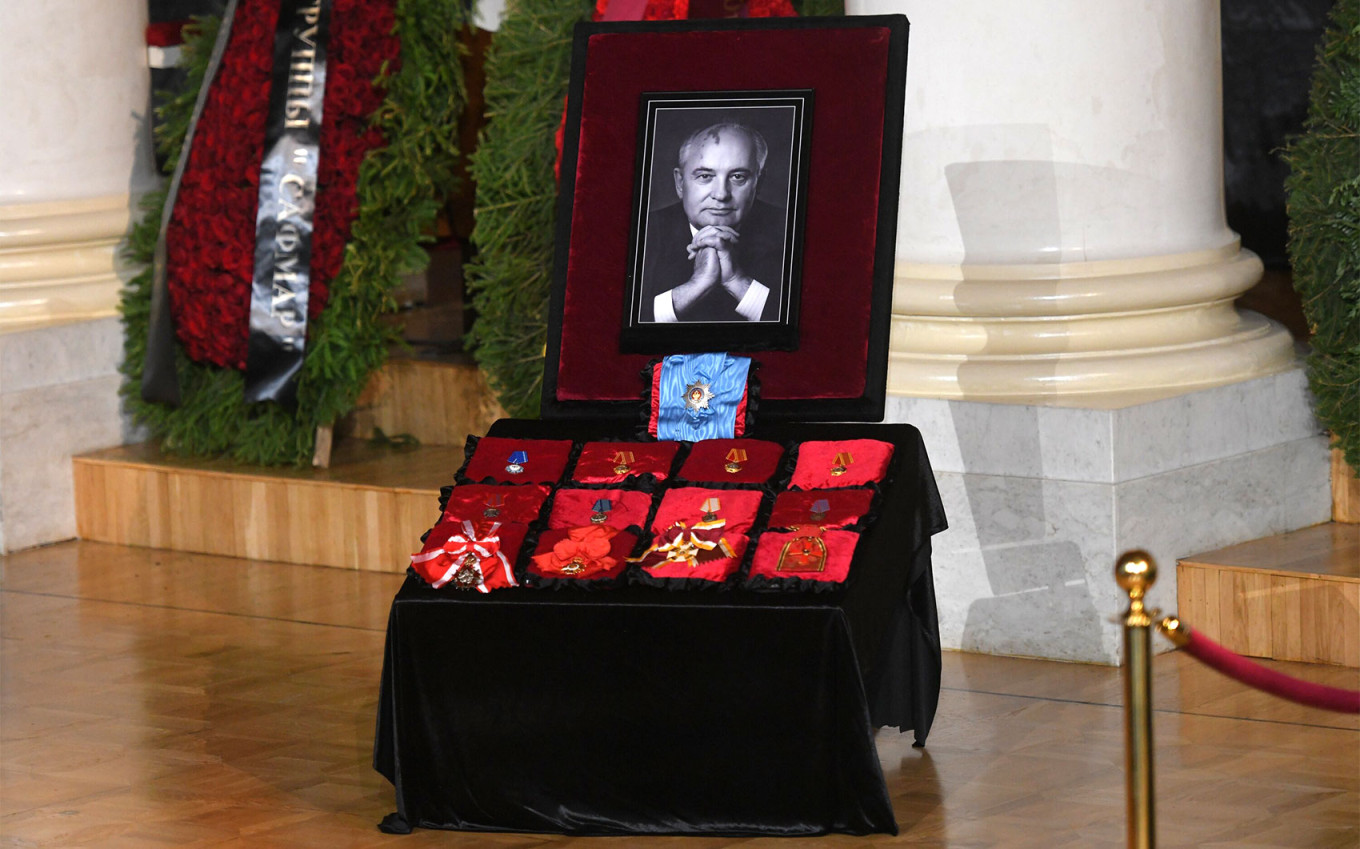
Funeral ceremony for Mikhail Gorbachev.Anton Velikzhanin / Moscow 24 / Moskva News Agency
The last leader of the Soviet Union, Mihail Gorbachev died on Aug. 30 at the age of 91.
Lauded in the West for his political reforms, Gorbachev was scorned by many in Russia for steering the Soviet Union to its collapse.
Several of Gorbachev’s political enemies also passed away this year: including two signatories to the Belovezh Accords, which effectively dissolved the Soviet Union — former Ukrainian President Leonid Kravchuk and former Belarusian leader Stanislav Shushkevich.
Unlike his successor, Boris Yeltsin, Gorbachev was not granted a state funeral and Russian President Vladimir Putin did not attend his burial.
Kirill Stremousov
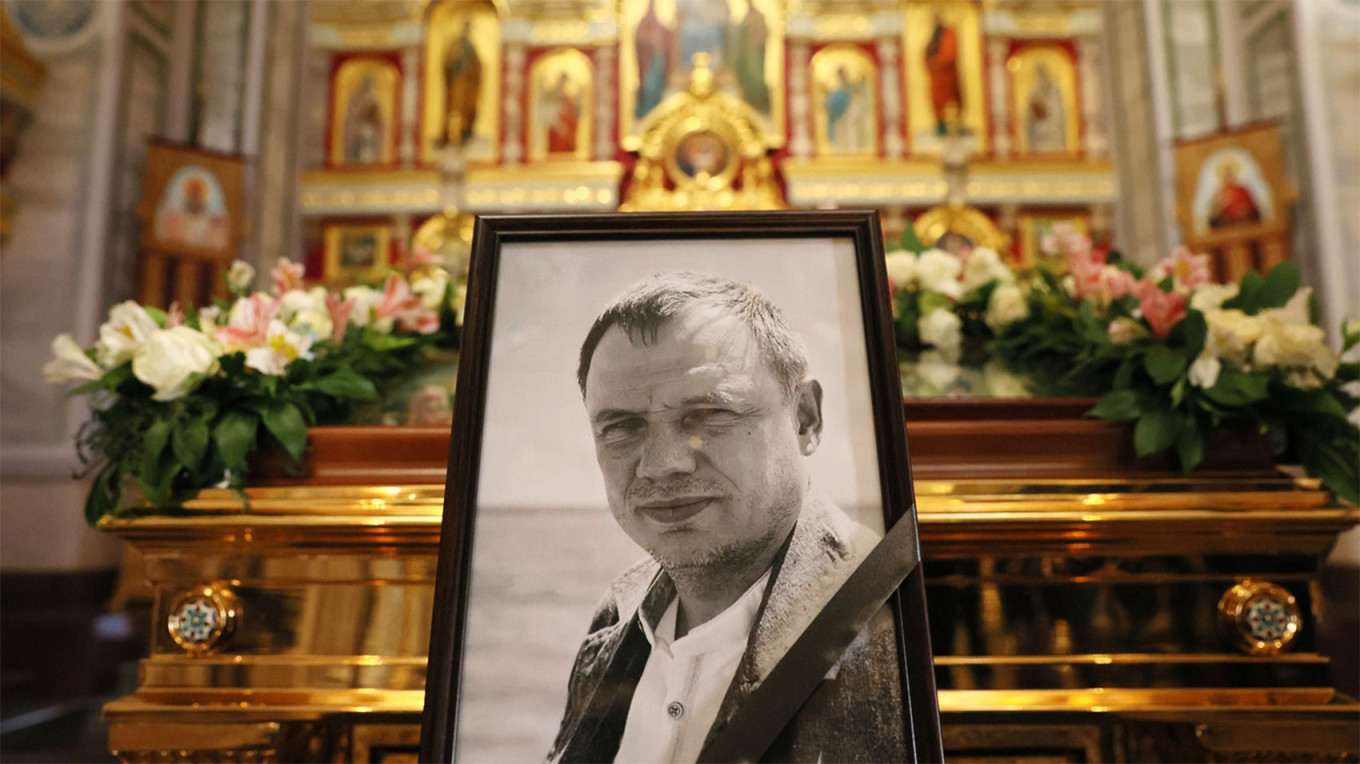 Funeral ceremony for Kirill Stremousov.rk.gov.ru
Funeral ceremony for Kirill Stremousov.rk.gov.ru
A fringe political figure catapulted into the spotlight by the war in Ukraine,the pro-Russian Ukrainian politician Kirill Stremousov died in a car crash in November.
The Moscow-installed deputy head of Ukraine’s Kherson region, Stremousov was an outspoken supporter of the invasion of Ukraine and a prolific propagandist — pumping out a pro-Moscow message on his many social media channels.
“The Nazis have no chance to break through into Kherson,” Stremousov said on his Telegram channel in October, referring to Ukrainian forces.
Less than a month later, however, Russian forces abandoned the city and the Ukrainian army triumphantly entered Kherson.
Two days before the last Russian troops exited Kherson, Stremousov died when a car in which he was traveling collided with two other vehicles.
Ravil Maganov
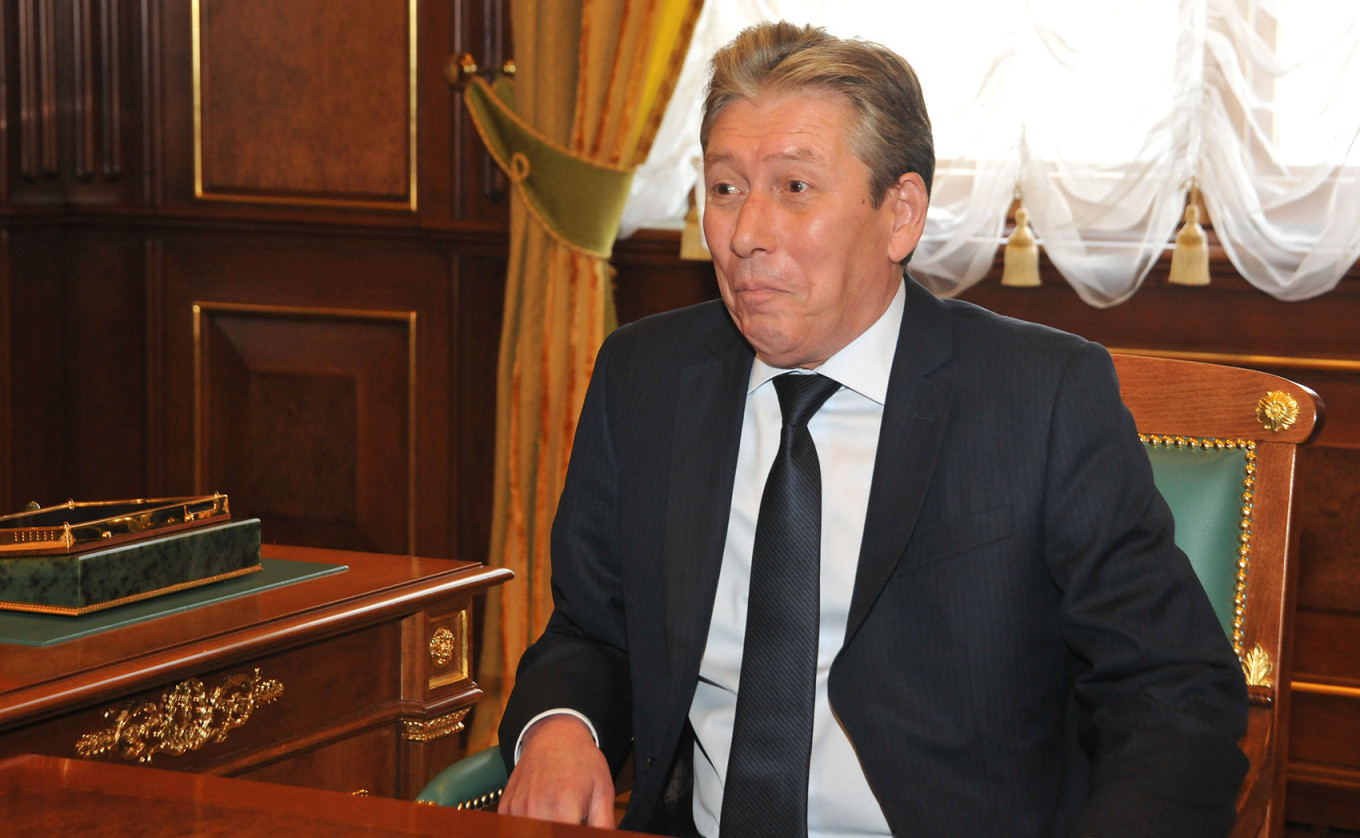 Ravil MaganovTatarstan.ru
Ravil MaganovTatarstan.ru
Chairman of Russian oil giant LUKoil, Ravil Maganov, died in September after he fell from a sixth-floor window in Moscow’s Central Clinic Hospital.
At the time, LUKoil said the Tatar-born businessman “had passed away following a severe illness,” without offering further information.
Russian state media reported the 67-year-old’s death as suicide.
But three people close to Maganov said at the time they believed it was highly unlikely that he would have taken his own life, Reuters reported.
Maganov is among a number of high-profile Russian executives figures to die in unclear circumstances in 2022, although no evidence of foul play has been found.
LUKoil, Russia’s second-largest oil company, was one of a handful of domestic corporations to openly call for an end to the invasion of Ukraine.
Oksana Baulina
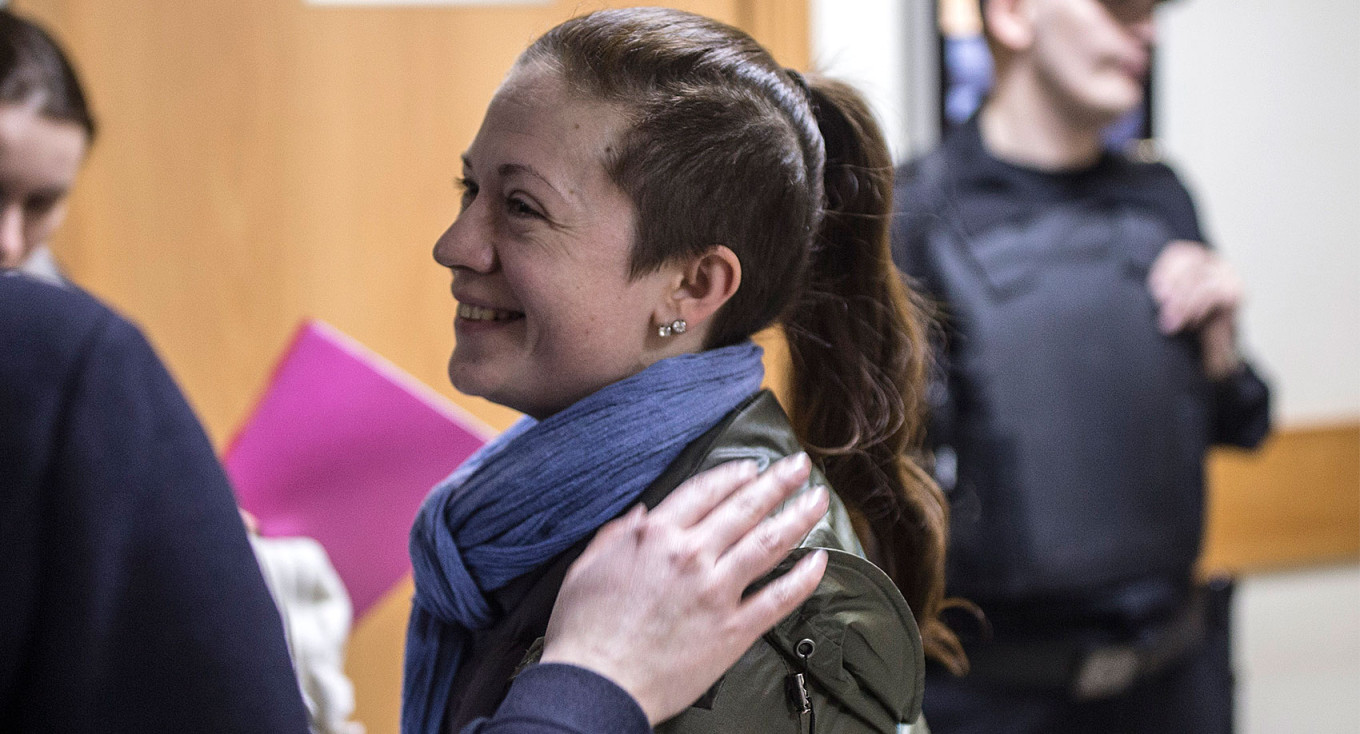 Oksana BaulinaEvgeny Feldman (CC BY-SA 4.0)
Oksana BaulinaEvgeny Feldman (CC BY-SA 4.0)
Russian journalist Oksana Baulina was killed in Kyiv in March by a Russian missile strike while reporting for independent media publication The Insider.
A former aide to Russian opposition leader Alexei Navalny, Baulina, 42, went to Ukraine as a reporter shortly after the Russian invasion began.
She sent dispatches from Lviv and Kyiv on the destruction caused by Russian missiles.
Baulina went to document the aftermath of an attack in Kyiv’s Podolskiy district on Mar. 23 when she was killed in another Russian missile barrage.
She was described posthumously as “incredibly brave but never reckless or irresponsible, always directing her superhuman energy to the most righteous causes.”
Yevgeniy Nuzhin
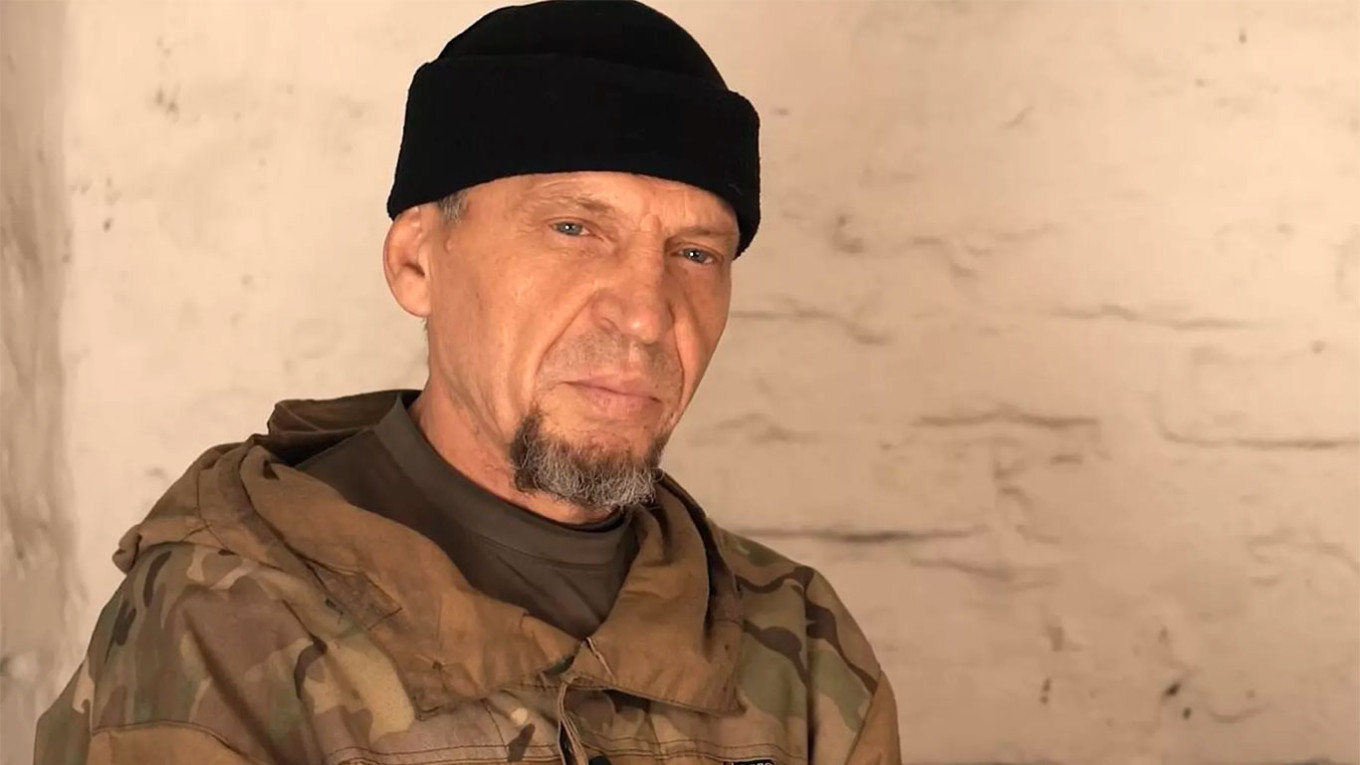 Yevgeniy NuzhinRaminaeshakzai / YouTube.com
Yevgeniy NuzhinRaminaeshakzai / YouTube.com
Former prison inmate Yevgeny Nuzhin, 55, died in November when he was bludgeoned to death in an apparent revenge killing carried out by Russian mercenary group Wagner.
Recruited four months earlier by Wagner to fight in Ukraine while serving a 24-year sentence for murder in a Russian jail, Nuzhin was one of thousands of prisoners promised early release under a scheme to bolster Russian troop numbers.
Shortly after being deployed, Nuzhin surrendered to Ukrainian forces, stating in a September interview while a prisoner of war that he had always intended to defect.
However, he did not remain in Ukrainian captivity for long and was returned to Russia in a prisoner exchange. Back in the hands of Wagner, he was apparently executed — appearing in a video posted by Wagner-linked Telegram channel Grey Zone channel that showed him being repeatedly struck in the head with a sledgehammer.
Valery Polyakov
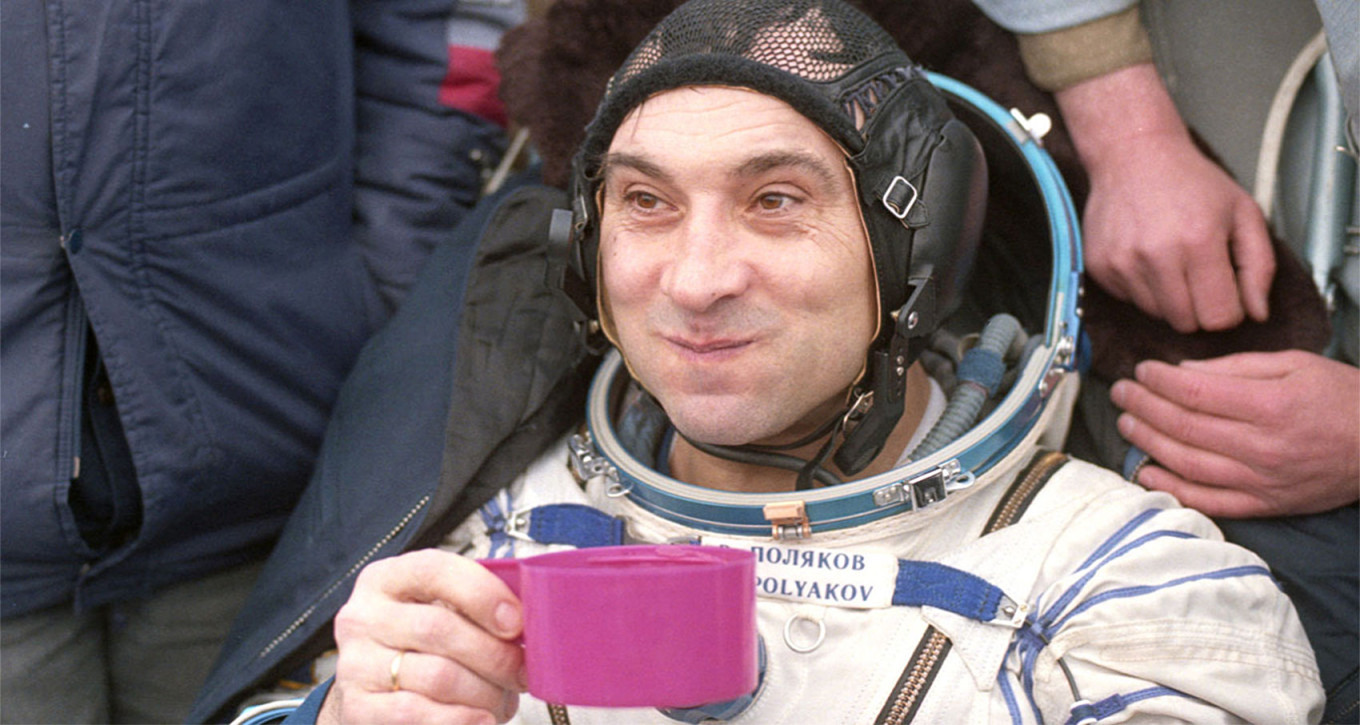 Valery PolyakovAlbert Pushkarev / TASS
Valery PolyakovAlbert Pushkarev / TASS
Record-breaking Soviet cosmonaut Valery Polyakov died on Sept. 19 at the age of 81.
Famed for living aboard the Mir space station for 437 days, the longest single stay made by any human in space, Polyakov contributed to research on the human body’s capabilities.
Born at the height of World War II in the western Russian city of Tula, Polyakov embodied the upward social mobility possible in the Soviet Union at the time.
Polyakov made a total of two space expeditions during which he spent a total of 678 days and 16 hours in orbit.
Source:themoscowtimes.com/